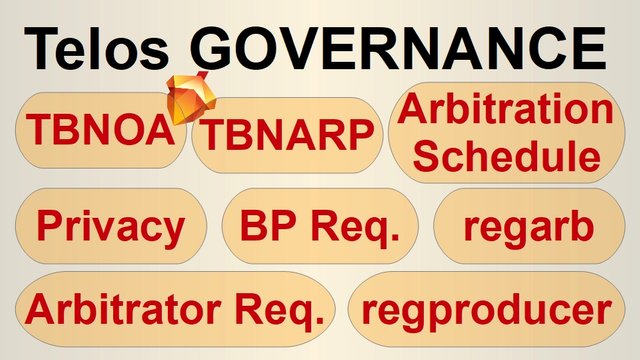Telos and Governance
Why Governance in Blockchains?
Most public blockchain networks are decentralized networks. They need to maintain byzantine fault tolerance to ensure authenticity. Byzantine fault tolerance is complex to maintain and mange. It requires innovative forms of distributed governance. Without it, long-term sustainability of the blockchain network is not easy to maintain. There must be a balance between human intuitions and computer governance based on algorithms and/or artificial intelligence.
Blockchain governance is one of the most popular and complicated topics in the blockchain space. Future blockchain industry landscape will be influenced by how blockchains are governed. Blockchain governance may have four principals:
- Consensus
- Incentives
- Information
- Governing Structure
Moreover blockchain governance can be divided into two primary categories:
- Off-Chain Governance
- On-Chain Governance
Telos and Governance
Telos (as part of EOSIO family) has implemented On-Chain Governance model. Telos implements direct democracy through on-chain voting mechanisms. These voting mechanisms are optimized to support decentralization. Telos have complete documentation and operating structures for;
- full on-chain governance,
- the ability to ratify or amend the governance documents by community voting,
- a worker proposal system, as well as
- election of block producers, and
- arbitrators.

Here are the fundamental principals, main elements and features of Telos blockchain governance:
Note that these documents will be recorded on-chain and modifiable by community vote (via TLOS token ownership).
Operating Agreement (TBNOA)
This is the prime governing document for Telos. It talks about rights and responsibilities of becoming a member of the Telos Blockchain Network. It is required by anyone who wants to opt-in. Anyone who wishes to access or use Telos has to opt-in to TBNO.
TBNO is like the EOS Constitution. But it is very mature and detailed in comparison with EOS Constitution. TBNOA thoroughly defines all network parts and participants and describes governance actions such as;
- electing block producers,
- amending the governance documents,
- submitting a worker proposal system submission,
- etc.
Please note that TBNOA has inherited almost no terms from the EOS Constitution. The TBNOA includes the other five governance documents by reference and each of them adopts its definitions and terms.
Arbitration Rules & Procedures (TBNARP)
The Arbitration Rules & Procedures describes the entire process of arbitration on Telos;
- from filing a case to procedures for arbitration, to
- delivery of arbitral judges decisions, to
- block producers for execution.
The EOS counterpart for this can be considered as ECAF Rules. EOS does not have yet any published ECAF Handbook. the Telos Arbitration Rules are entirely independent from the ECAF Rules and share no text.
TBNARP is a community amendable core governance document on Telos, whereas the ECAF Rules are set and maintained by the ECAF with no mechanism for input or control from the broader EOS community.
Arbitration Parameters Schedule
The Arbitration Parameters Schedule documents the initial Arbitration Parameters Schedule used to determining the;
- base fees,
- number of arbitrators to be assigned to various types of Cases, and
- Small Claims limit amount.
'regproducer' Contract Human Language Terms ('regproducer')
The 'regproducer' contract is used by any member desiring to become a block producer candidate to nominate themselves. The human-language terms of this contract set out the responsibilities and rules for block producer candidates.
'regproducer' text is largely inherited from the EOS 'regproducer' contract with much additional text added. The primary difference between the EOS and Telos versions is that while both list prohibited actions, the Telos version also documents;
- penalties for any infractions,
- the method of enforcement, and
- the responsibility of block producers to enforce the rules on other BPs.
Producer Minimum Requirements (BP Minimum Requirements)
The BP Minimum Requirements is a list of disclosures, practices, equipment and networking standards that block producer candidates must adhere to in order to serve. Failure to meet the minimum requirements disqualifies a BP from service until the omission is cured, regardless of how many votes the BP has acquired. Due to the newness of the network, these requirements are described in increasingly stringent phases which the block producers can vote to move between based on 2/3 + 1 voting. EOS does not have minimum requirements or a similar document. A minimum amount of RAM is specified in the EOS 'regproducer' contract.
'regarb' Contract Human Language Terms ('regarb')
The 'regarb' contract is used by any member desiring to become an arbitrator candidate to nominate themselves. The human-language terms of this contract set out the responsibilities and rules for arbitrator candidates. There is no similar document on EOS because EOS does not elect arbitrators.
Arbitrator Minimum Requirements (Arbitrator Minimum Requirements)
The Arbitrator Minimum Requirements is a list of disclosures, practices, equipment and networking standards that arbitrator candidates must adhere to in order to serve. Failure to meet the minimum requirements disqualifies an arbitrator from being assigned new cases until the omission is cured, regardless of how many votes the arbitrator candidate has acquired. Due to the newness of the network, these requirements are described in increasingly stringent phases. There is no similar document on EOS because EOS does not elect arbitrators.
Network Data Protection Policy
Telos has a "data protection policy" document for Telos Blockchain Network.
Link: https://telosfoundation.io/governance
Links:
https://telosfoundation.io/
https://twitter.com/HelloTelos
https://t.me/HelloTelos
https://www.youtube.com/c/TheTelosNetwork
Great informative read...
Thanks.